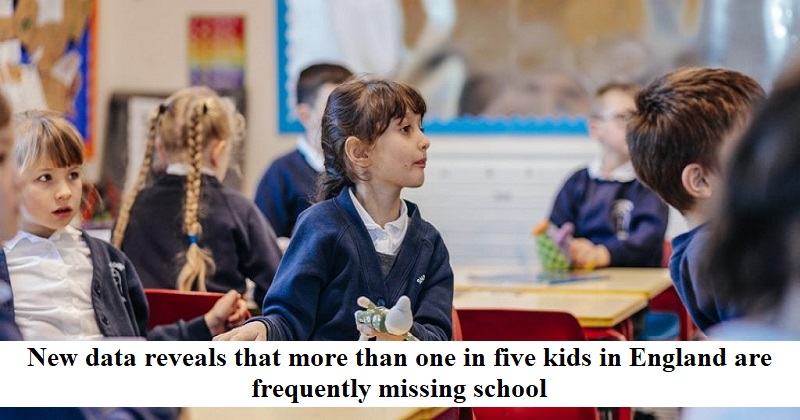
New data has emerged indicating that over 20% of children in England are frequently missing school as they struggle to return to their pre-pandemic routines.
According to Dame Rachel de Souza, the Children’s Commissioner, some children are playing truant, while others are experiencing anxiety or have special educational needs, making it easier for them to stay at home. She urged parents to ensure their children return to school, as reported by the BBC.
Data from the Department for Education (DfE) revealed that 22.3% of children in England had persistently missed school during the last academic year. A closer look at the figures reveals that this problem is most pronounced among children on free school meals (37.9%) and those with an education, health, and care plan (33.4%).
Prior to the pandemic, only one in ten students would be absent.
The highest absenteeism was recorded on Fridays, as parents were often at home.
Dame Souza told the BBC that out of 1.8 million children, an estimated 100,000 were playing truant. She emphasized the importance of addressing attendance issues among children who are anxious about returning to school.
In response to this data, Bridget Phillipson, Labour’s shadow education secretary, expressed deep concern about the impact on young people’s futures. She mentioned her party’s plans to provide breakfast for every primary school child in England and improve mental health support for children. She also proposed increasing truancy fines for parents who do not ensure their children attend school. Currently, parents are fined £60 ($74.7), which will increase to £120 ($151) if not paid within 21 days.
A spokesperson for the DfE emphasized the importance of school attendance for children’s development. They noted that while attendance rates were improving, there was more work to be done to ensure regular education for all children. The DfE is focusing on increasing attendance rates, particularly for vulnerable children, and is providing support through attendance hubs and mentors. Additionally, they are updating guidance to support children, teachers, and schools.
The spokesperson also highlighted an increase in high needs funding by an additional £440 million ($555 million) for the 2024-2025 fiscal year, bringing total funding to £10.5 billion ($13.2 billion), an increase of over 60% since 2019-2020.

Post Your Comments